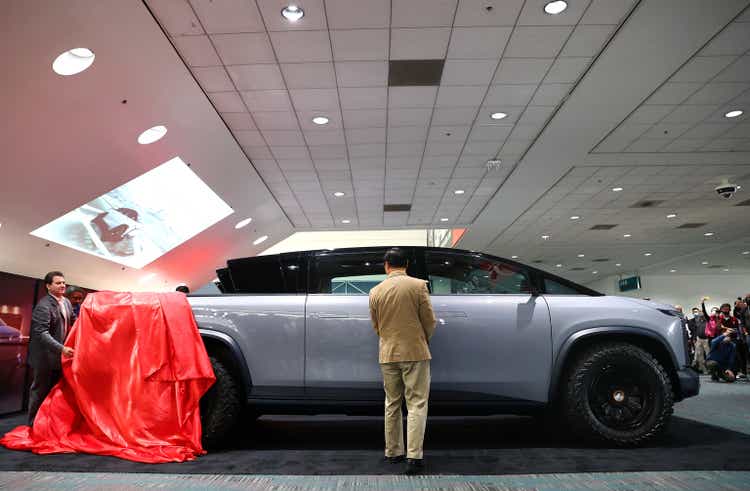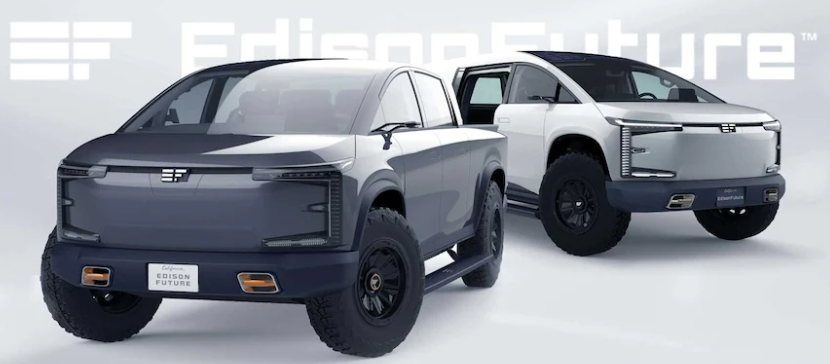Mario Tama/Getty Images News
Phoenix Motor (NASDAQ:PEV) is a high risk investment within the EV sector, with upside coming mainly from its EdisonFuture project that has the potential to be a game changer for the company.
Phoenix Motor Overview
Phoenix is an electric vehicle (EV) company, with its business based on the development of light and medium-duty EVs for the service and government fleet markets. The company operates as a subsidiary of SPI Energy (SPI), a Chinese renewable energy company, and is based in California.
It operates through two main brands, namely Phoenix Motorcars, which is focused on commercial markets including EVs, chargers and electric forklifts, and EdisonFuture which is intended to focus on light-duty EVs.
Phoenix was founded in 2003, but has debuted via its IPO very recently (a few weeks ago). Its current market value is about $120 million, being therefore a very small company by this measure. Moreover, its free float is only about 9%, thus market liquidity can be low and this may be an issue for some investors who may prefer to invest in more liquid stocks. Nevertheless, for retail investors its market liquidity is acceptable and daily value traded volume is more than enough to trade its stock for most retail investors.
PEV’s Business Model
Phoenix does business through its fully owned subsidiaries Phoenix Cars, Phoenix Motorcars Leasing and EdisonFuture Motor, while its core business is the design, assembly, and integration of electric drive systems and light and medium-duty EVs. It also markets and sells EV chargers for the commercial and residential markets.
Since its inception, the company has been focused on the development of commercial EVs, and even though Phoenix is a small company, it can be considered to be an EV pioneer since it offered its first commercial EV in 2014. The company developed and integrated its proprietary electric drivetrain into the Ford (F) Ecoline Chassis, specifically on the Ford E-450. The Ford E-Series is the dominant chassis in the medium duty class market in the U.S., in terms of market share and varying configurations. This chassis can be used for different type of vehicles, from shuttle buses, to Type A school buses, utility trucks service trucks, beyond others.
By being able to develop a proprietary electric drivetrain based on the most popular chassis in the U.S., Phoenix is able to have a diverse customer range, ranging from airport shuttle operators, to hotel chains, last-mile delivery fleets, or large corporations.
Phoenix sells its products fully integrated into complete vehicles or though in-kit form to other business partners, for integration in the same vehicle platforms. This means that Phoenix’s current business model is not to develop EVs on its own, but to convert commercial vehicles into an EV, which means that the capital requirements toward research & development or production in this segment are much lower than for a typical car manufacturer.
Despite that, Phoenix has its own manufacturing facilities, where it can perform the integration of its electric drivetrains into the E-450 chassis, or the integration can be done directly as part of the customer’s manufacturing process.
Phoenix has continued to improve its electric drivetrain and is currently offering its third-generation drivetrain, which includes the largest battery pack and longest electric range of any Class 4 product on the market, reaching up to 160 miles in range.
In addition to engineering and final stage assembly of its electric drivetrain, Phoenix also offers other services to customers helping them to electrify their vehicle fleet. In advance of sales, Phoenix assists customers in analyzing their fleets’ routes for suitability of EV adoption, vehicle type, and battery pack size. This analysis also includes charger requirements and location, also offering a variety of L2 and DC fast-charging solutions to its fleet customers.
This means that Phoenix can be considered a one-stop shop for customers to electrify their fleets. This integrated business model can be a competitive advantage compared to peers over the long-term, focusing on a specific market segment where the competition is lower than compared to other market segments, namely in the passenger market where competition is increasing rapidly both from new entrants and traditional carmakers.
As of the end of 2021, Phoenix has delivered a total of 104 EVs to over 45 fleet customers, consisting of 91 shuttle buses and 13 work and delivery trucks, being the largest deployment of EVs on the Ford E-Series chassis. This means that Phoenix is a company with a proven technology and an established customer base, being a strong base for business growth in the coming years.
Growth
Regarding growth, Phoenix has manufacturing expansion plans for its current business, but what can be a game changer was its decision back in 2021 to expand its product offering to the light-duty vehicle market, under the EdisonFuture brand.
As I’ve discussed in previous articles, the growth prospects of the EV market are very good, especially in developed markets, where market penetration is higher due to more advanced charging infrastructures, and Phoenix has decided to use its experience to take its business to the next level over the coming years and develop its own EV vehicles.
Following its decision to potentially enter the EV market with its own brand, Phoenix entered into an agreement with Icona Design, an automotive design company, to design concept models of EVs for both passenger and commercial applications, including pickup trucks and last mile delivery vans.
The company showed two concept cars under the EdisonFuture brand at the Los Angeles Auto Show in December 2021, the EF1 pickup truck and the EF1 delivery van. These EV concept cars have solar panels to add extra range and are expected to have cutting-edge technologies, being engineered completely by Phoenix and potentially becoming a competitor to, for instance, Tesla’s (TSLA) Cybertruck or Rivian’s (RIVN) R1T. The technical specifications of these models are quite interesting compared to other electric pick-up trucks, and the company is already accepting reservations for these two models. There isn’t a timeline when they will be available in the market yet, but they will most likely not be available before 2025.
EdisonFuture Concept Trucks (Phoenix Motor)
If Phoenix can successfully develop these two models and bring them to market, it will change the company’s business profile dramatically, but for the time being investors should see this just as a high-risk, high-reward ‘project’.
While Phoenix has some experience in the EV market, it has never developed a full vehicle on its own and the financial resources needed to produce a quality product are considerable, thus the risk of failure should not be overlooked. Additionally, the timing is also questionable considering that these concept trucks were presented to the public ahead of its IPO, and in my opinion, to increase investor interest in its equity story and push for a higher valuation.
However, risks are quite high and investors shouldn’t be too excited about these concept cars. As shown by Tesla, the development of an EV pickup truck takes a long time (Tesla presented the Cybertruck in 2019 and is only expected to start production next year), plus Phoenix does not have any previous experience in car conception or mass production, thus it may take much longer than expected for the EF1 pickup or van to reach the market.
Regarding production, most likely Phoenix will follow the model of other EV start-ups, such as NIO (NIO) for example, and outsource its production to an experienced third-party, at least until it achieves scale to invest in its own factories.
Regarding its financials, Phoenix’s revenues amounted to only $3 million in 2021, a decline of 33% from the previous year showing that its core business of electrifying large duty trucks and buses is not really that scalable. Moreover, its profitability is quite poor considering that its gross profit has been negative over the past three years, while its net profit was negative by $14.5 million last year. This means that Phoenix is expected to continue to invest in its business growth for many years down the road and the prospects of reaching break-even are low in the next few years.
Conclusion
At this stage Phoenix is a speculative investment within the EV sector, having upside potential mainly from its EdisonFuture project. This is something that will require significant investments, thus the company should continue to report losses for many years and the risk of not securing funding should not be overlooked in the current environment with investors less willing to fund start-ups compared to just a few months ago.
I’m not a buyer of this stock right now as I see it as ‘highly risky’, but will keep it on my radar to see how the development of the pickup truck and the van goes on over the coming months, and may start a position if execution progresses well during this period.


Be the first to comment